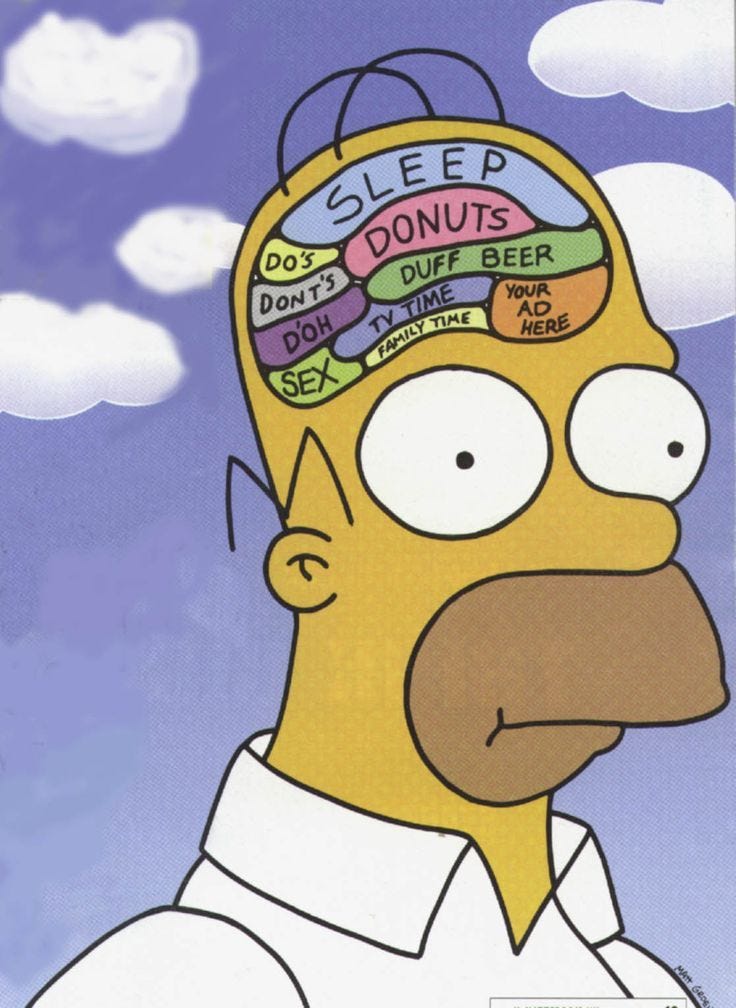Maybe we should worry less about how much time kids look at screens.
Miller et al. (2023) found no support for the idea that excessive screen time "changes kids' brains."
Our brains reflect what we think, do, and experience - although perhaps not quite as literally as shown here:

But, there’s a big difference between the world affecting what people know and think versus affecting how people know and think. Do I worry that social media might teach my kids unrealistic expectations for how they look or how the world works? Yes, absolutely. But do I worry that it’s going to fundamentally, negatively change the mechanics of how their brain works? Not so much, particularly after a recent study by Miller et al. (2023).
The take-message from a new study by Miller et al. (2023) is there’s no evidence yet that excessive screen time (including TV, social media, etc.) changes the way kids’ brains grow and develop (i.e., neurodevelopment). This was an impressive study: nearly 8,000 US participants ages 9-11, longitudinal research, multiple well-vetted mental health and cognition tests, neurological test data, pre-registered hypotheses, thorough analyses, and publicly available data and analytic code so people can rerun analyses. The authors summed up the findings in a crisp, single sentence:
“Together, these results provide a clear pattern of results that do not support the idea of “screens changing brains” in young people in a consistent or enduring way as many have proposed” (p. 304).
And they looked at social media separately and found the same thing. Now, of course there are caveats: we need more research in this area to really feel confident in the findings, we should look at other age ranges, we should do the work over longer periods of time, etc. But, overall this is a strong study that suggests we should worry less about total screen time. I’d worry more about what kids are seeing and thinking during that screen time, how they are making meaning of it, and whether there are people around to help them understand it productively.